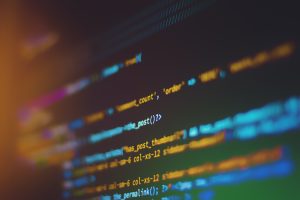 This blog series explores some threats that digital technologies can create to freedom of religion or belief and other human rights. It starts with Neville Rochow’s elaboration on the potential harmfulness of algorithm-based decision-making if the program does not take account of religious beliefs. Rochow emphasizes that the predictable and (in many ways) helpful expansion of AI’s role in everyday life must be accompanied by companies’ greater corporate accountability and obedience to the law.
This blog series explores some threats that digital technologies can create to freedom of religion or belief and other human rights. It starts with Neville Rochow’s elaboration on the potential harmfulness of algorithm-based decision-making if the program does not take account of religious beliefs. Rochow emphasizes that the predictable and (in many ways) helpful expansion of AI’s role in everyday life must be accompanied by companies’ greater corporate accountability and obedience to the law.
Yulia Razmetaeva explains why AI technology may be non-neutral and have a significant influence on freedom of thought pointing at it as a source of fake information that calls for violence.
Finally, Sohail Wahedi discusses how social media has affected religious self-expression and what we should do to successfully navigate between the Scylla of censorship and the Charybdis of religious hate speech.
Posts in the Series:
Neville Rochow. What Is and What Should Never Be: Corporate and Digital Specters that Threaten Fundamental Freedoms
Yulia Razmetaeva. Today’s Technologies’ Apparent Neutrality and Freedom of Thought, Conscience, and Religion
Sohail Wahedi. Private Beliefs, Public Platforms and the Rule of Law
